The 15 Best Games Since 2000, Number 7: Resident Evil 4
Capcom rejiggers Resident Evil and comes up with the best entry in the franchise.
This article first appeared on USgamer, a partner publication of VG247. Some content, such as this article, has been migrated to VG247 for posterity after USgamer's closure - but it has not been edited or further vetted by the VG247 team.
We're currently in the middle of our daily countdown of the 15 Best Games Since 2000. Want to read more? Check out the rest of the entries here.
Resident Evil 4 is the best goddamn game in the series. Full stop. Sadly, I'm not allowed to just write that and move onto the next game in the list. So let's talk RE4.
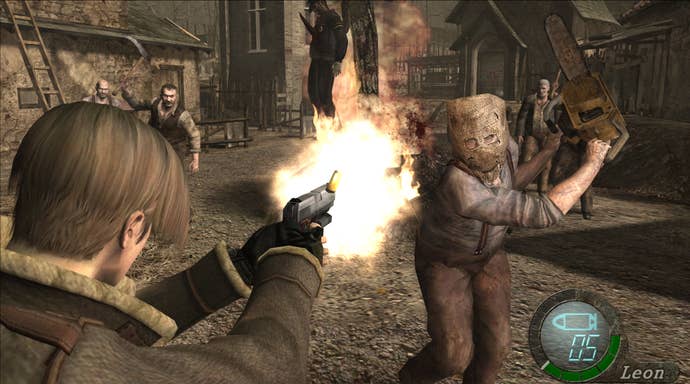
Though this 2005 release is called "Resident Evil 4", it's worth noting that it was actually the 13th game in the franchise at that point. (The franchise had annual releases after Resident Evil 2.) Resident Evil kickstarted the entire franchise and the survival horror concept with a claustrophobic romp through a scifi-tinged haunted house. Resident Evil 2 expanded the action to encompass an entire city, introduced the iconic trenchcoat-wearing tyrant Mr. X, and actually linked the journeys of the two protagonists together through the "Zapping System". Resident Evil 3: Nemesis built on Mr. X's terrifying presence with its eponymous tyrant and Code Veronica improved the series' visual presentation on Dreamcast.
Capcom was desperate to capitalize on the success of Resident Evil, so it was willing to offer up anything to keep players interested in the brand. This led to spin-off products that weren't all that great, including Resident Evil Gaiden, Resident Evil Survivor, Resident Evil Outbreak, and Resident Evil Dead Aim. The publisher was flailing around, releasing whatever it could in the hopes that soemthing would stick. Even main entries like Resident Evil 3 felt a bit tired.
Capcom went back to the drawing board for the next "real" Resident Evil. The first attempt was led by Hideki Kamiya, but that went so far off the mark that the game eventually became Devil May Cry. After a few stalled attempts, Resident Evil designer Shinji Mikami decided to step out of the producer role he had held since the first game's success. He co-wrote and directed what would become Resident Evil 4. Mikami re-invented the franchise he created under intense pressure from Capcom, who wanted to cancel the series if this game wasn't a success. Mikami had to fight to move the game away from what Resident Evil had become.
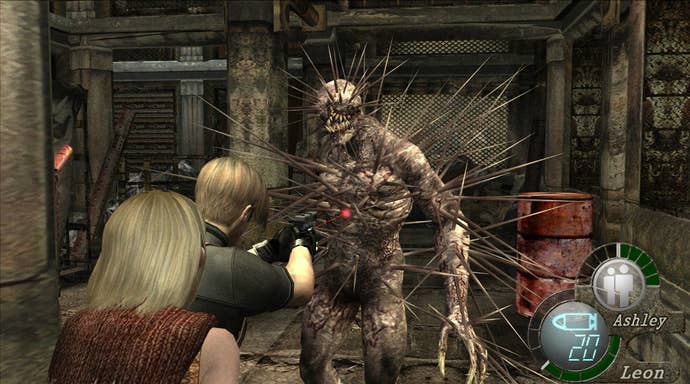
"The footage that we all saw last year at E3 was pretty much the same Resident Evil that everybody has already played," Resident Evil 4 producer Hiroyuki Kobayashi told IGN at the time. "We wanted to change the image of the franchise. We wanted to turn that all around. The footage you saw last year - that would probably be totally acceptable with other software companies, especially with the graphics and everything. But it was not acceptable for R&D4 at Capcom. That is one of the many reasons why we wanted to throw away everything and instead come up with something totally new that we would be completely satisfied with."
Resident Evil 4 was not a Resident Evil game in the classic sense. Instead, the game took the feelings that the Biohazard/Resident Evil name invoked and cut away all other preconceptions. Gone was the fixed camera of previous entries, dropped in favor of a third-person, over-the-shoulder camera. This dovetailed with the RE series' tank controls: your viewpoint was aligned with the main character, so you had better control over the direction you wanted to go. The fixed camera and tank controls increased the feeling of fear in previous entries by removing finer control from the player, but Mikami wanted something more action-oriented this time around.
The Umbrella Corporation, the oppressive evil company behind every game up until that point, was replaced with the Los Illuminados cult. Zombies gave way to Los Gandos, Spanish villagers infected by the parasite Las Plagas. Quick Time Events were added, making even cutscenes more tense. From top-to-bottom, Resident Evil 4 was new, with the only real returning elements being Resident Evil 2 protagonist Leon Kennedy and the presence of former STARS member-turned-villain Albert Wesker.
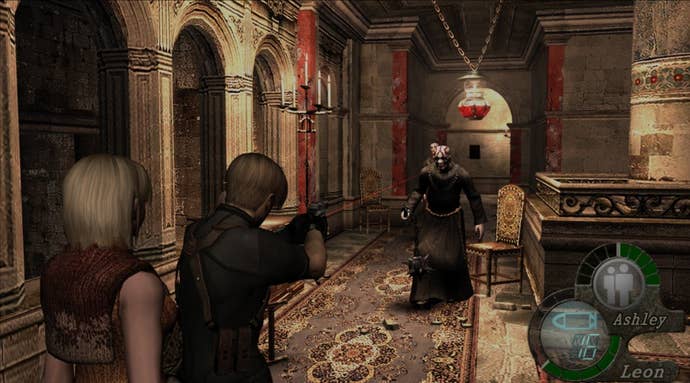
Despite all these changes, Resident Evil 4 worked.
It split the difference between tense horror and fast, controllable action. That's a balance that Capcom had trouble finding with later entries, but Resident Evil 4 hit it spot-on. RE4 carried the series' tension forward through clever level design and the sheer number of available enemies. Players had room to move around certain environments, using chokepoints and barriers to slowly whittle down the opposition. In the face of these mobs, Leon had greater firepower and more ammo than previous entries, but resource rationing was still a key part of playing the game.
The environments and situations you encounter in the game are all over the place. The game jumps from a sleepy Spanish village, to an infested lake, a gothic castle, an underground mine cart ride, and even a brief trip to tentacle land. You're running around an area killing villagers, then you're escorting the President's daughter, and then you need to hunker down and do a bit of sniping. Resident Evil 4 jumps from idea-to-idea, from concept-to-concept, and yet it feels cohesive. You're always doing something new, but it's all still Resident Evil.
Resident Evil 4 is a game that, in abstract, shouldn't have come together as well as it did. Mikami wanted players to be afraid in Resident Evil, but many at Capcom assumed there was only one way to make players feel that fear. Instead, Mikami moved beyond that, realizing that there were other ways to make the player feel overwhelmed and powerless. He made Resident Evil, so he felt no need to stay faithful to framework he originally created. RE4 benefited heavily from that unique perspective and freedom.
Resident Evil 4 is the best game in the franchise. It's a hallmark that has yet to be beaten, even by Mikami himself. It's a game that shouldn't exist, but I'm glad that it does.
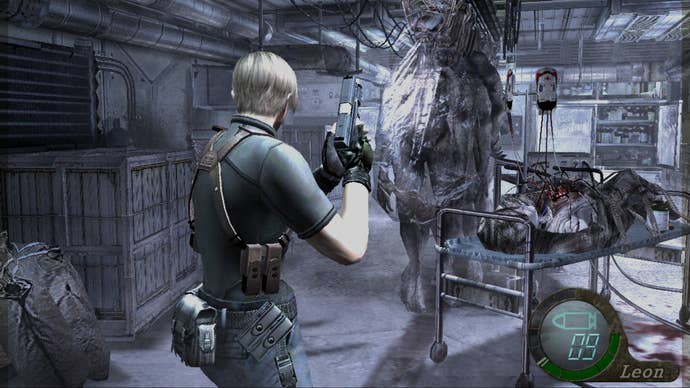



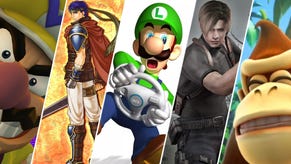
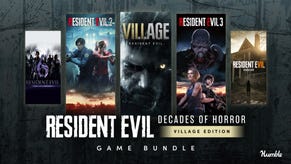

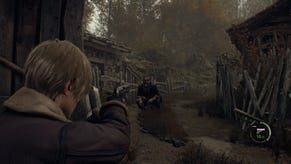
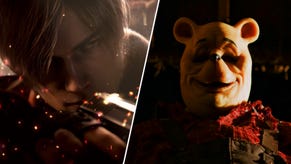
.png?width=291&height=164&fit=crop&quality=80&format=jpg&auto=webp)
.png?width=291&height=164&fit=crop&quality=80&format=jpg&auto=webp)